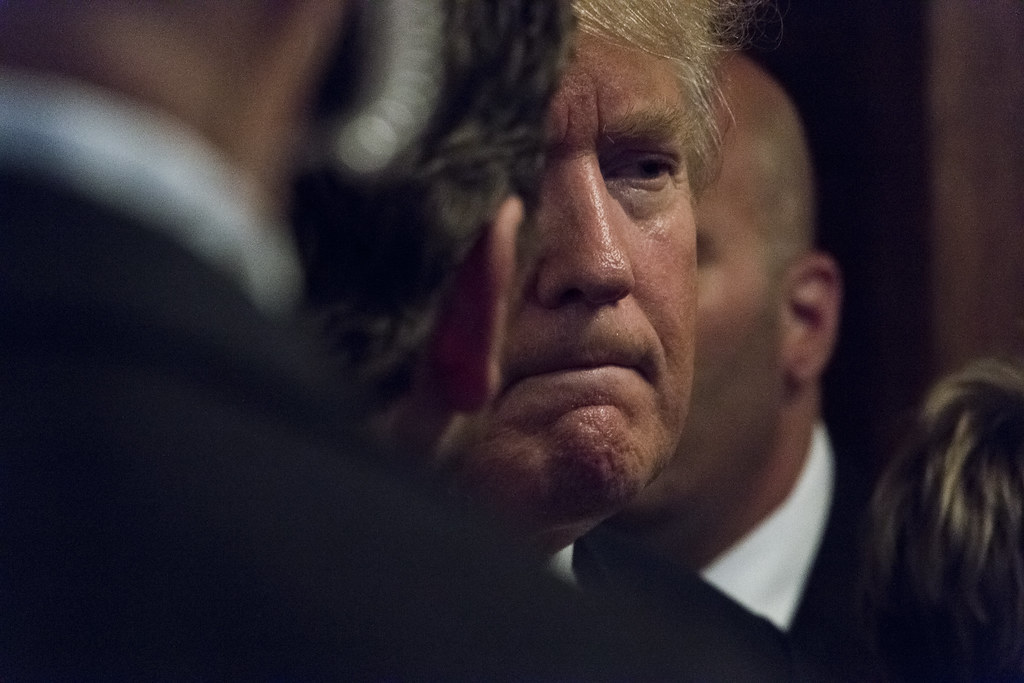It’s about more than Mexico
How about giving US presidential aspirant, Donald Trump, some reading material on what the United States has brought to Latin America.

John Pemble, via Flickr CC.
Good news for comedians everywhere: Donald Trump — famous for his tacky reality TV shows, the opulent towers he finances and his obscene fortune (though there is strong evidence he is close to bankruptcy — just announced today that he will be joining the 27 other Republican Party candidates for President of the United States. Bad news everyone: Donald Trump, again, wants to be president of the United States.
On paper, he appears to be a long shot, and like his previous attempts at the presidency of the United States (in 1988, 2000, 2004 and 2012), this might just be a publicity stunt. Basically, on character for a man who has made great deal of his fortune by working the media attention to his divisive opinions in his favor.
But he is already using this new political platform to spew hatred and misconceptions. He probably knows his audience very well and knows what do they want to hear. In a speech he gave today in his Trump Tower in Midtown Manhattan, he appealed to the fears many of his followers have of difference, of otherness (immigrants, Muslims, the usual targets), and he appealed to the sense that American exceptionalism is vanishing and needs to be restored.
In his speech he said:
When was the last time anybody saw us beating, let’s say, China in a trade deal? They kill us. I beat China all the time. All the time. (…) When did we beat Japan at anything? They send their cars over by the millions, and what do we do? When was the last time you saw a Chevrolet in Tokyo? It doesn’t exist, folks. They beat us all the time.
When do we beat Mexico at the border? They’re laughing at us, at our stupidity. And now they are beating us economically. They are not our friend, believe me. But they’re killing us economically.
The U.S. has become a dumping ground for everybody else’s problems.
(APPLAUSE)
Thank you. It’s true, and these are the best and the finest. When Mexico sends its people, they’re not sending their best. They’re not sending you. They’re not sending you. They’re sending people that have lots of problems, and they’re bringing those problems with us. They’re bringing drugs. They’re bringing crime. They’re rapists. And some, I assume, are good people.
But I speak to border guards and they tell us what we’re getting. And it only makes common sense. It only makes common sense. They’re sending us not the right people.
It’s coming from more than Mexico. It’s coming from all over South and Latin America, and it’s coming probably — probably — from the Middle East. But we don’t know. Because we have no protection and we have no competence, we don’t know what’s happening. And it’s got to stop and it’s got to stop fast.
After repeating how Mexico is “stealing” American business and describing the North American nation along with China and ISIS as the U.S.’s biggest enemies, he went on:
I would build a great wall, and nobody builds walls better than me, believe me, and I’ll build them very inexpensively, I will build a great, great wall on our southern border. And I will have Mexico pay for that wall.
Let’s not delve too deeply on his obviously xenophobic comments and ignorance in the history of human migration. Let’s not stay too much on how Trump’s ludicrous assertion that Mexicans and other Latin American immigrants to the United States are all rapists until proven innocent (or “good people,” I assume). Let’s not think what the world would like with a man like this as the head of the United States.
Instead, let’s focus on giving Trump some reading material on what the United States brings to Latin America. He could, for example, read about how the U.S.-funded war on drugs has devastated Colombia and Mexico, killing thousands, displacing millions and empowering drug cartels. He could find out more about how the United States government has fueled gang violence in El Salvador. He could also look at the U.S. bloody history of “political” intervention in Central America that has left many Hondurans, Guatemalans and Salvadorans with no better choice than to try to make the deadly way north. Or he could read about the “sketchiest” (to put it lightly) things the DEA has done in Latin America and beyond.
Maybe afterwards he’ll understand why so many Latin Americans are forced to flee their countries. But maybe he already knows about all of this, and he only cares about getting enough rating to keep making his millions. Who knows? I don’t. But in any case I would strongly advice him to use his building skills to build a wall around himself.



















